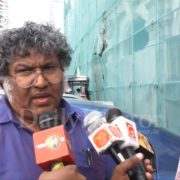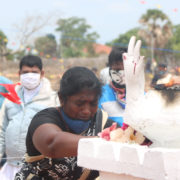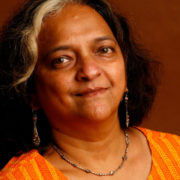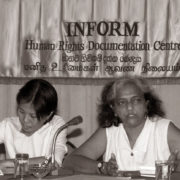DOWNLOAD FULL REPORT: ENGLISH | SINHALA | TAMIL |
In January 2018, President Maithripala Sirisena completed third year of his five year term. Though he and Prime Minister Ranil Wickramasinghe’s election campaigns were supported by many rights activists and social movements, progress on human rights continued to be disappointing in 2018 too.
Local Government Election which was held 10th February 2018 was one of the significant events during the first quarter of 2018. The most progressive t feature of the election was the 25% quota for women candidates, despite the disappointment of it not being implemented in full. However, there was also widespread resistance to increased number of female candidates and violence that was based on gender. Female candidates of all ethnic groups across the country faced physical and other forms of violence, but attacks on social media and intimidation by family members were more intensely directed at Muslim female candidates.
The quarter also saw systematic attacks on the Muslim community in the Ampara and Kandy districts, by groups identifying themselves as Sinhalese – Buddhists. In Kandy, there some lives were lost, and the damage to properties, including Mosques, houses, shops, vehicles etc. was much more than in Ampara. In both places, survivors and eyewitnesses blamed the Police for watching by, delayed and inadequate responses. In some instances, the Special Task Force of the Police had physically and verbally abused Muslims.
The members to the Office of Missing Persons was finally appointed on 28th February. But the establishment of the other three transitional justice institutions promised in September 2015 – an Office for Reparations, a Truth Commission and Special Court – remained uncertain and indefinite, with not even draft legislations shared. Other measures to address war related issues, such as reducing military’s role in the North, releasing military occupied lands, justice for political prisoners, equal opportunities for memorialization for war dead etc., have been painfully slow or non-existent. Progress on a new constitution has also been stalled. Cases against the military, on murder and disappearance of journalists and civilians under the previous regime dragged on without much progress.
Long term protest campaigns related to land occupation by the military and seeking answers about disappeared continued in the former war zones in the North. Protests intensified as they completed one year in February – March and also on Independence Day on 4th February, where some repressive actions by the military and police were reported.
In pre-dominantly Sinhalese areas, in some cases, angry protesters had turned violent against the police, but considering the unarmed nature of the protesters and provocations, police reactions appear to be disproportionate. In one instance, protesters who had thrown stones were not only arrested, but reported to have been beaten in custody. Students and parents protesting against a private medical institution were attacked and university students who were opposing ragging of new students were also reported to have been attacked by the raggers.
Several incidents of threats, harassments and obstructions on journalists were reported from different parts of the country, with the military and supporters of a politician being accused. Office premises belonging to an NGO running a project to prevent HIV/AIDS were forcefully entered by some group of villagers, and two persons in the network of NGO were assaulted by them with presence of media and police. A female lawyer was reported to have been assaulted when she had come to give evidence before courts. A female school principal from Badulla was compelled to kneel down by the Provincial chief minister and she had complained of death threats after she had exposed this and complained against the incident. And staff of a Sri Lankan diplomatic mission was seen making threatening gestures towards protesters in London.
In 9 out of 22 incidents, the victims were female, while in about 7 incidents, such as in protests, victims were mixture of men and women. The 22 incidents are from 8 of the 9 provinces in the country. Two were from the capital Colombo, while others have been reported from Mullaitheevu, Jaffna, Batticaloa, Anuradhapura, Polonnaruwa, Puttalam, Hambantota, Galle, Moneragela, Badulla and Kandy districts. One was in London, while the last one, on proposed legal amendment to the Voluntary Social Services Organizations (VSSO) Act, would have negatively affected freedom of association in the whole country.





Comments